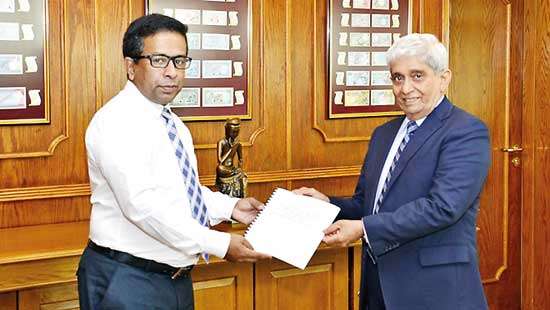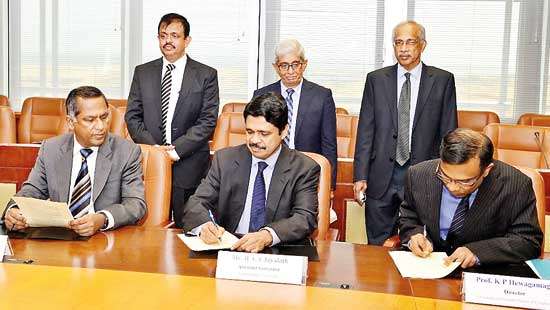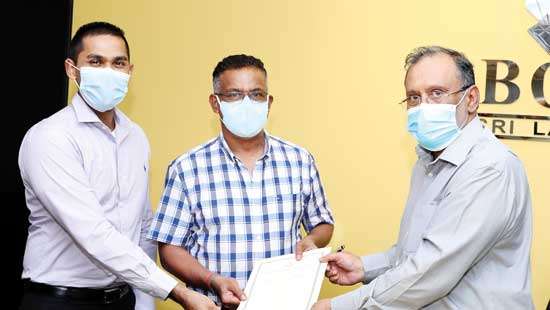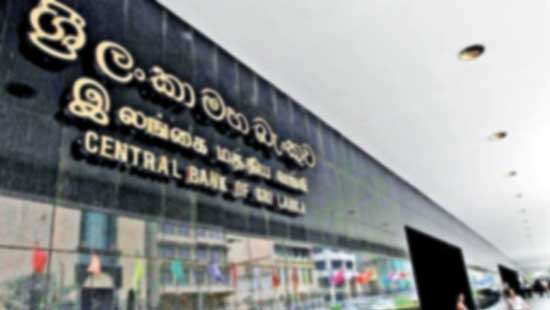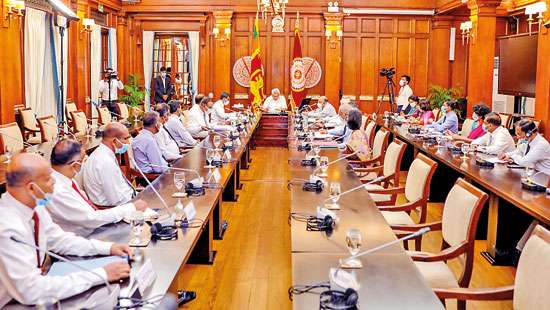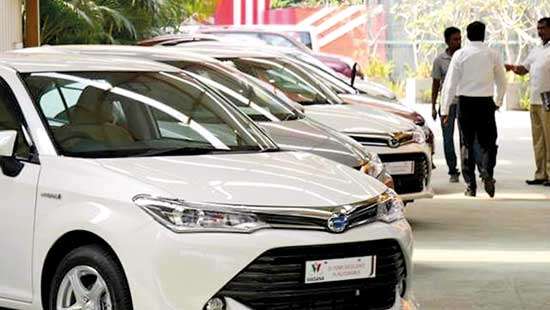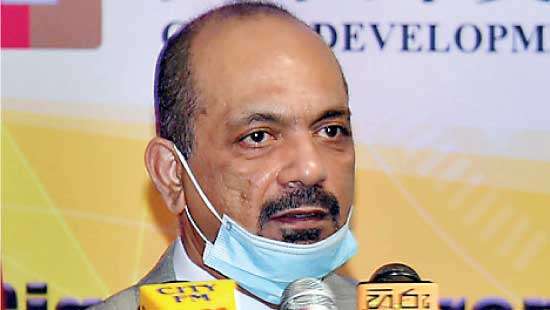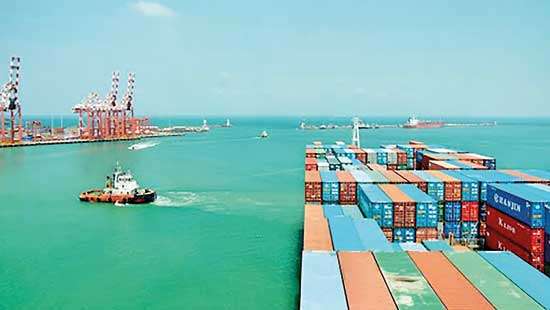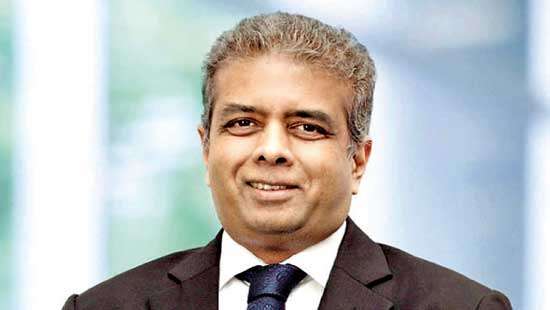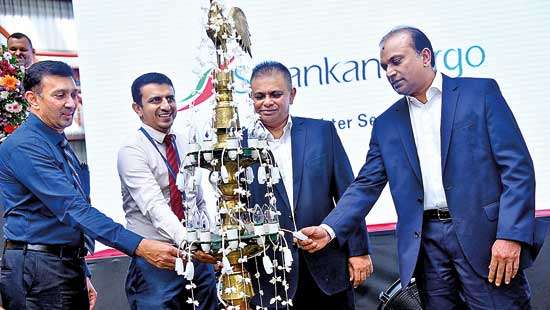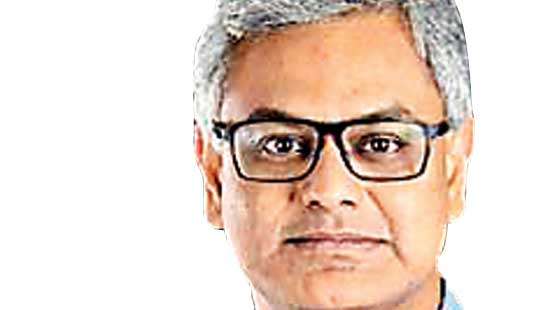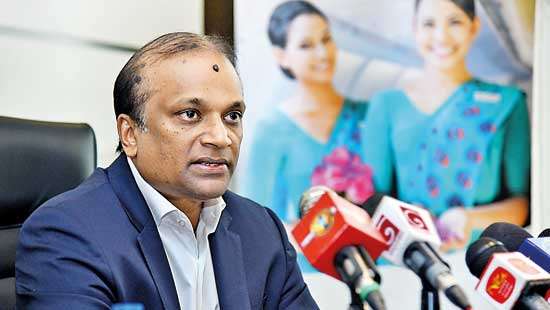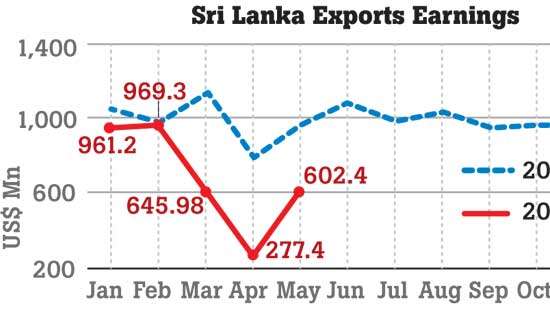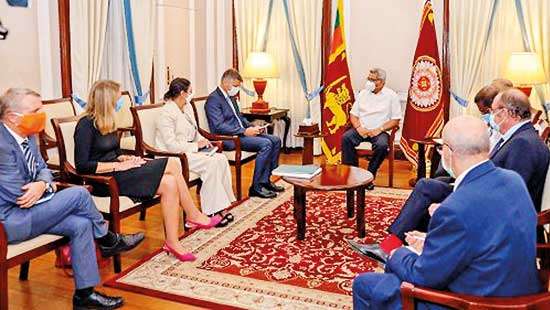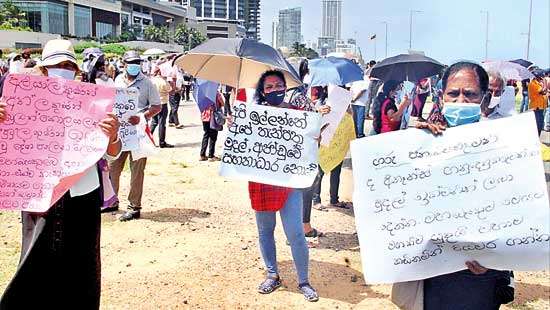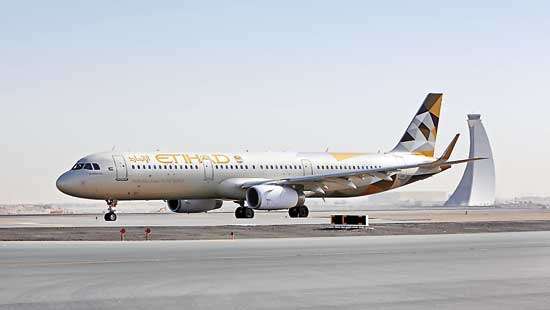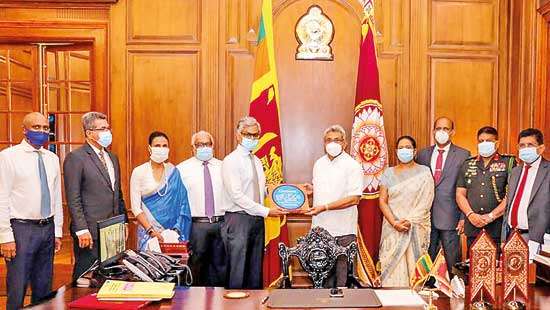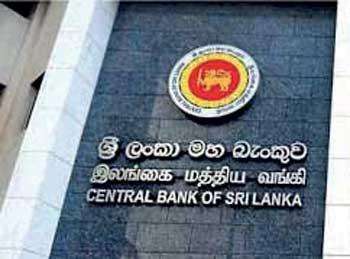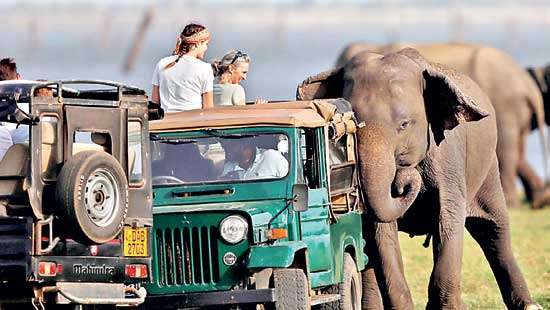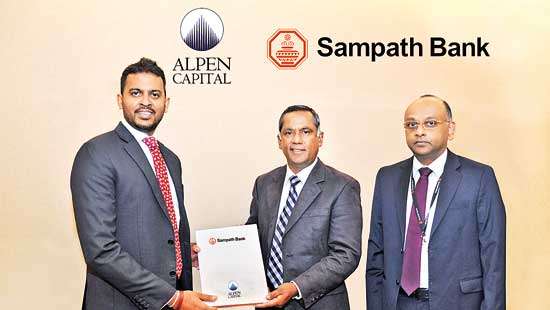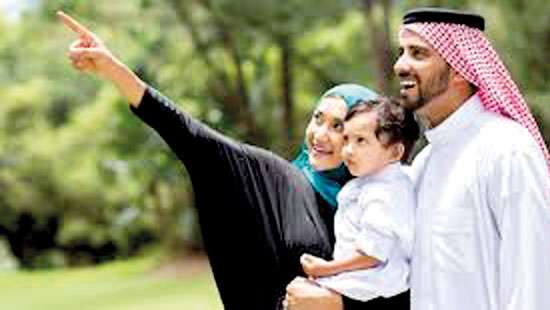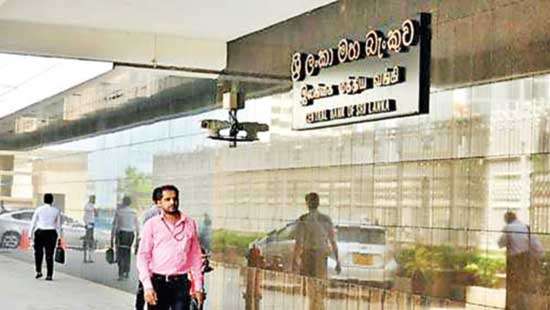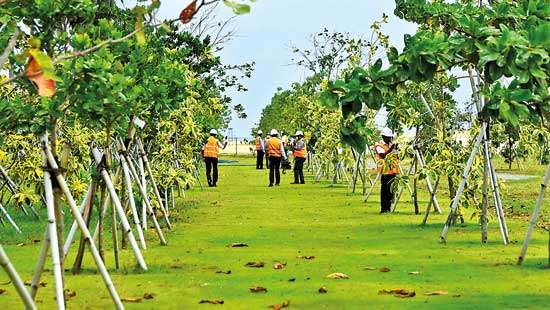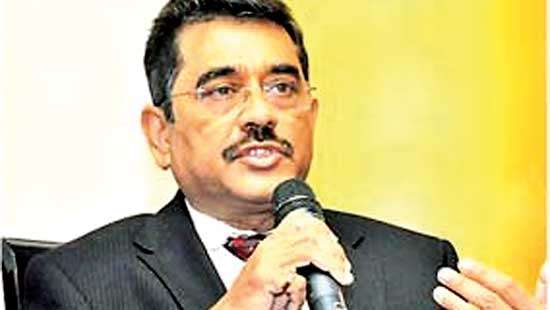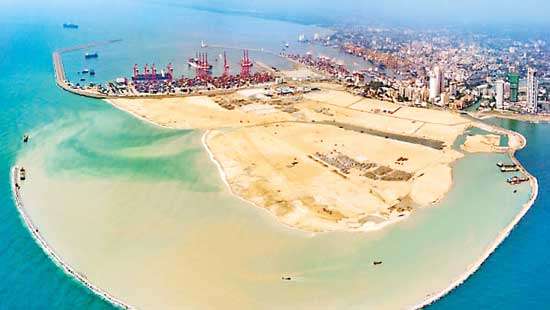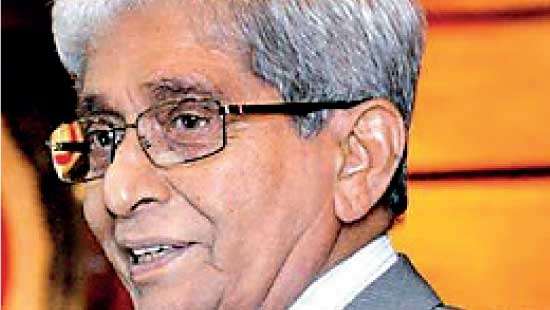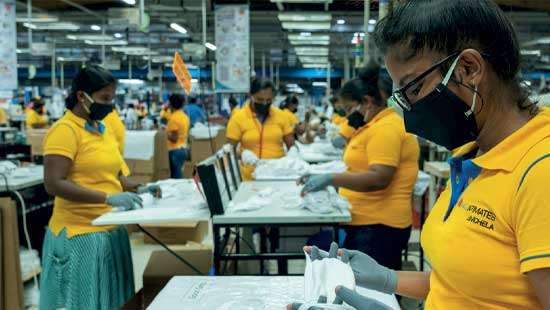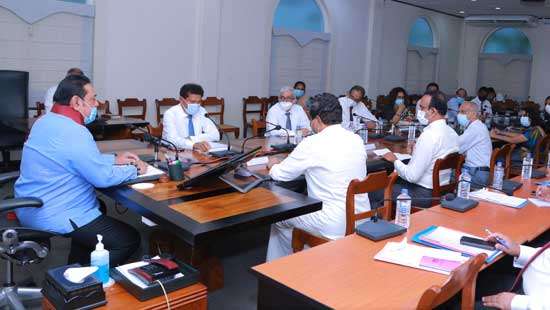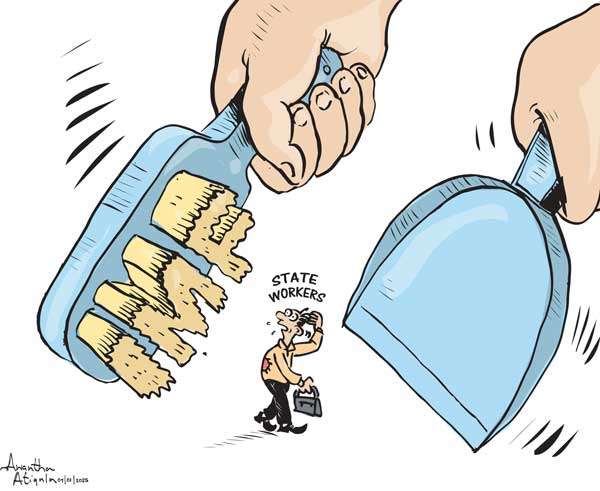Business Main
Committee makes proposals to address irregularities in finance and leasing businesses
09 Jul 2020
 0
0
In view of the recent developments in the finance leasing business, Central Bank Governor Prof. W.D. Lakshman appointed a three-member committee to examine and report on the irregularities and illegal activities of the finance and finance leasing businesses and to make recommendations to curtail such activities.
Dart Global to set up US $ 3mn logistics fulfilment centre in Muthurajawela
07 Jul 2020
 0
0
Dart Global Logistics (DGL) has signed an agreement with the Board of Investment (BOI) to set up a US $ 3 million state-of-the-art logistics fulfilment centre, at the Muthurajawela Industrial Zone, located in Kerawalapitiya, Wattala.
Loans under CB liquidity support scheme gather steam
06 Jul 2020
 0
0
Loans under the Central Bank liquidity support scheme to assist pandemic-affected businesses gathered steam as of late as the banking sector regulator granted approval for 6,314 new applications for Rs.25.3 billion worth loans at 4 percent during the eight days from June 25 to July 2.
BOC eyes fresh US$ 300 mn facility to strengthen balance sheet
01 Jul 2020
 0
0
State-owned banking giant Bank of Ceylon (BOC) is set to receive a fresh injection of US$ 300 million from multilateral lenders within the year, an influx that would assist in further strengthening the bank’s balance sheet.
Biz community confused over govt.’s trade policies
30 Jun 2020
 0
0
The businesses operating in the country are observed to be largely confused as to how they should chart their way forward in the post-lockdown scenario, as the relevant government authorities have failed to be clear in their directives and communication with the business community, with regards to international trade.
Post-COVID recovery depends on effective execution of public-private vision: CCC
27 Jun 2020
 0
0
As Sri Lanka looks for avenues to move towards a positive growth trajectory, the Ceylon Chamber of Commerce (CCC) stressed that an accelerated post COVID-19 recovery will be predicated on the effective execution of a public-private shared vision for economic revival and social sustenance.
SriLankan converts wide-body passenger aircraft into dedicated cargo carrier
26 Jun 2020
 1
1
In its quest to continuously support Sri Lanka’s export industries and to keep the country connected with the global economy during the pandemic, the national carrier SriLankan Airlines has converted a wide-body passenger aircraft into a dedicated cargo aircraft.
JKH secures US$ 175mn IFC funding for supermarkets, hotels
24 Jun 2020
 1
1
Premier blue chip John Keells Holdings PLC (JKH) has secured a US$ 175 million long-term finding line from IFC, a member of the World Bank to mainly fund the expansion of its supermarket chain and to refurbish/expand its hotel properties in Sri Lanka and Maldives.
The Finance depositors stage protest
19 Jun 2020
 0
0
The depositors of The Finance Company PLC (TFC) staged a protest outside the Presidential Secretariat yesterday urging authorities to settle their payments immediately. The Central Bank on May 22 cancelled TFC’s licence to operate as a finance company owing to serious erosion of liquidity.
Cinnamon Hotels offer 1000 complimentary holiday packages for health workers
17 Jun 2020
 0
0
As a way of saying ‘Thank You’ to Sri Lanka’s courageous healthcare workers, Cinnamon Hotels & Resorts is offering 1,000 complimentary full board holiday packages, for two nights at nine of its properties in Sri Lanka.
Tourism sector reopening day to be formally announced tomorrow
16 Jun 2020
 0
0
The government plans to formally announce the reopening day of the country’s coronavirus-battered tourism sector for foreign tourists, following a key stakeholder meeting tomorrow, which is likely to be August 1 or an even earlier date.
SL among top ten travel destinations GCC keen to promote: Survey
13 Jun 2020
 0
0
Sri Lanka is among top ten destinations that the outbound tour operators of Gulf Cooperation Council (GCC) countries are planning to actively promote from July when air travel returns with the relaxation of COVID-19 related restrictions, a survey conducted by Germany based Aviareps showed.
Monetary Board approves new law to regulate moneylenders
12 Jun 2020
 0
0
In what could be termed as a long overdue regulatory reform to the country’s financial system, the authorities are now working to enact new laws to regulate the informal money lending business to protect people who often fall victim to those individuals and firms referred to as loan sharks.
Port City to resume construction in full swing from mid-July
11 Jun 2020
 0
0
The construction activities of the multibillion dollar Colombo Port City (CPC) is expected to resume work in full swing from mid-July onwards, as more workers return to work with the gradual easing of COVID-19-related restrictions in Sri Lanka.
CB assures resilience of financial system
08 Jun 2020
 0
0
Central Bank Governor Prof. W.D. Lakshman issuing a special statement yesterday assured the resilience of Sri Lanka’s financial system and all possible measures taken by the Central Bank to ensure the safety of the deposits of the general public.
MAS becomes first in SA to complete drawdown under StanChart’s US$ 1bn COVID-19 financing commitment
05 Jun 2020
 0
0
Standard Chartered announced this week that MAS Intimates (Pvt) Ltd., a division of MAS Holdings, became the first company in South Asia to complete a drawdown under the bank’s US$ 1 billion COVID-19 financing commitment.
CB should take responsibility for collapse of financial institutions under its supervision: PM
04 Jun 2020
 1
1
The Central Bank of Sri Lanka (CBSL) should take the responsibility when financial institutions approved by it and under its supervision go into bankruptcy, Prime Minister Mahinda Rajapaksa said.

JICA assures continued aid to Sri Lanka
04 Jun 2020
 1
1

Govt. to tap migrant worker savings with Rs.744.75mn entrepreneurship scheme
04 Jun 2020
 1
1

Business community welcomes New Year with positive sentiments
04 Jun 2020
 1
1

New Year New Challenges New Opportunities
04 Jun 2020
 1
1

Emirates launches additional flight to CMB-DXB route
04 Jun 2020
 1
1

‘Lankadeepa’ shines at People’s Pinnacle Awards 2024
04 Jun 2020
 1
1

Rohingyas rescued in SL are victims of human trafficking: Minister
04 Jun 2020
 1
1

Burst pipeline causes water supply disruption in Galle
04 Jun 2020
 1
1


